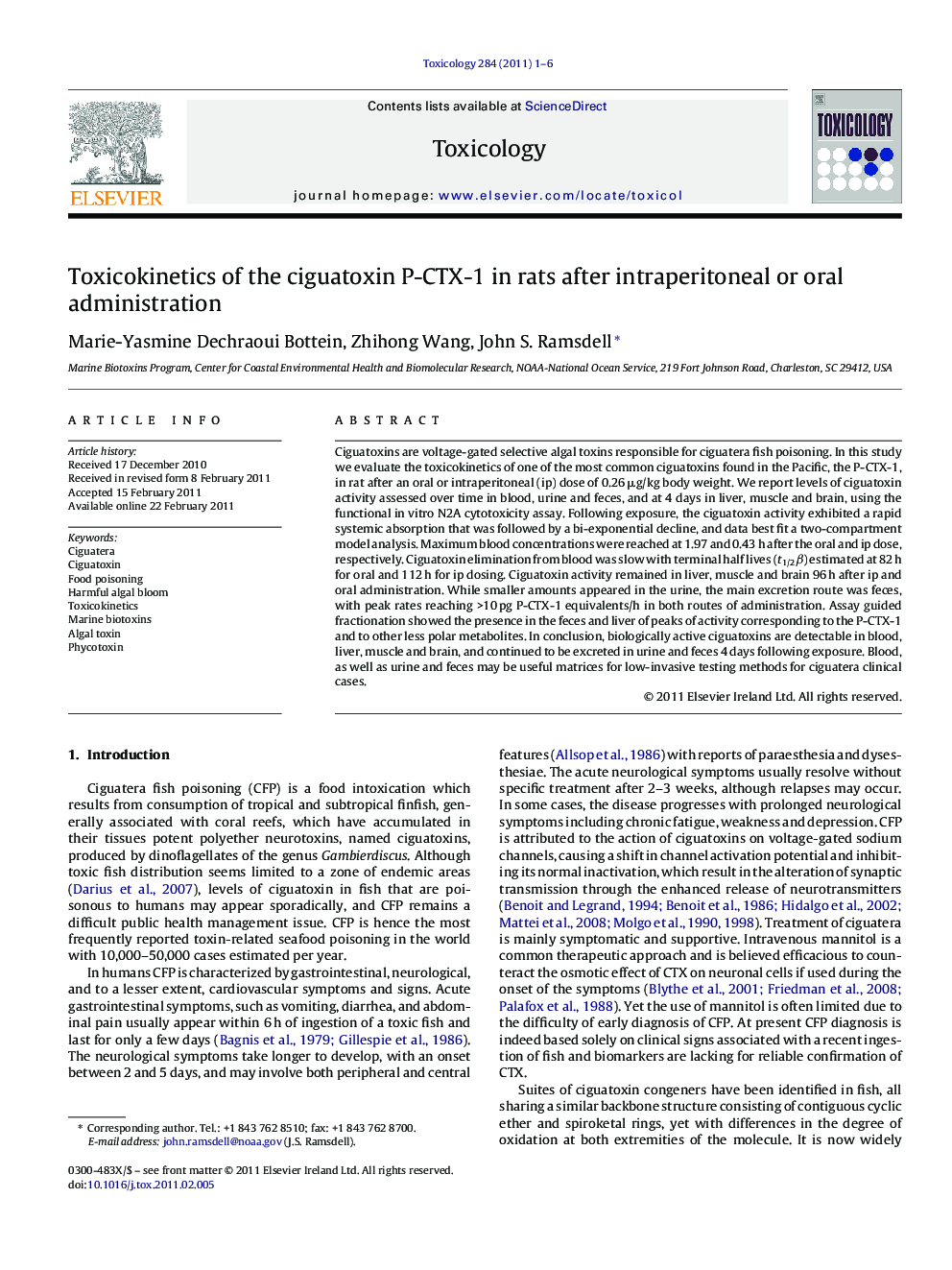| کد مقاله | کد نشریه | سال انتشار | مقاله انگلیسی | نسخه تمام متن |
|---|---|---|---|---|
| 2596153 | 1562373 | 2011 | 6 صفحه PDF | دانلود رایگان |

Ciguatoxins are voltage-gated selective algal toxins responsible for ciguatera fish poisoning. In this study we evaluate the toxicokinetics of one of the most common ciguatoxins found in the Pacific, the P-CTX-1, in rat after an oral or intraperitoneal (ip) dose of 0.26 μg/kg body weight. We report levels of ciguatoxin activity assessed over time in blood, urine and feces, and at 4 days in liver, muscle and brain, using the functional in vitro N2A cytotoxicity assay. Following exposure, the ciguatoxin activity exhibited a rapid systemic absorption that was followed by a bi-exponential decline, and data best fit a two-compartment model analysis. Maximum blood concentrations were reached at 1.97 and 0.43 h after the oral and ip dose, respectively. Ciguatoxin elimination from blood was slow with terminal half lives (t1/2β) estimated at 82 h for oral and 112 h for ip dosing. Ciguatoxin activity remained in liver, muscle and brain 96 h after ip and oral administration. While smaller amounts appeared in the urine, the main excretion route was feces, with peak rates reaching >10 pg P-CTX-1 equivalents/h in both routes of administration. Assay guided fractionation showed the presence in the feces and liver of peaks of activity corresponding to the P-CTX-1 and to other less polar metabolites. In conclusion, biologically active ciguatoxins are detectable in blood, liver, muscle and brain, and continued to be excreted in urine and feces 4 days following exposure. Blood, as well as urine and feces may be useful matrices for low-invasive testing methods for ciguatera clinical cases.
Journal: Toxicology - Volume 284, Issues 1–3, 18 June 2011, Pages 1–6